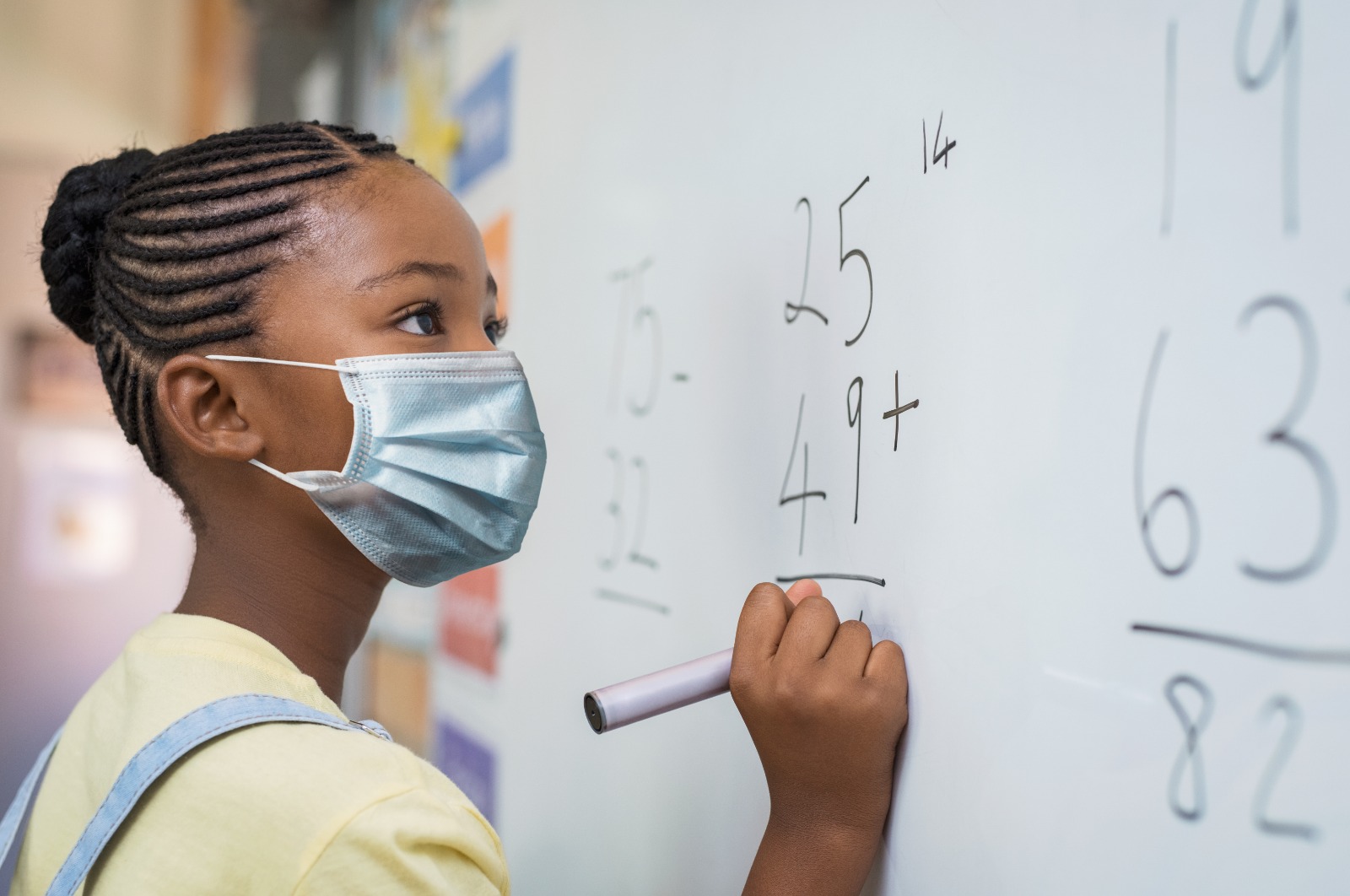RIO DE JANEIRO, BRAZIL – While America is moving full speed ahead to vaccinate its population, the coronavirus crisis leaves serious aftermath for its children and young people: school exclusion.
The lack of internet and the precarious access to technology generated school exclusion in millions of minors during the quarantines decreed in the last 16 months to face covid-19.

This was made known by Fundación Comparte – in charge of guaranteeing the right to education of more than 15,000 children – which, through its report “Impact of confinement on Latin American children”, revealed the “devastating consequences” of the quarantines in Argentina, Chile, Ecuador, Honduras, and Nicaragua.
The problems of access to technology caused a “delay in their education”, which increased school drop-out rates and generated problems of social exclusion, according to a survey carried out by Comparte in Honduras, where all the students consulted stated that they “did not have access to the Internet to follow online classes during the confinement”.
Latin American children were also affected in terms of nutrition. In Ecuador, for example, 20% of the students surveyed were overweight, and 11% were obese,” according to the same study.
On the other hand, Nicaraguan youths stated that they had sleep disturbances, and “26% had difficulty sleeping for fear of contagion or family bereavement”, revealed the foundation.
With the confinement, the minors spent more time at home, which resulted in “a notable increase in domestic violence and physical and verbal punishment,” Comparte said.
In Chile, a score of neighborhoods in Santiago will abandon this Tuesday the strict quarantines implemented until now, which will make it possible for dozens of schools to return to on-site classes.
In Colombia, the Ministry of Education announced that all schools in the country, without exception, will return to on-site classes after the mid-year school break.
Other countries in the region that have returned to classes are Ecuador and Uruguay.
However, according to Unicef, the region has suffered the longest school closures in the world. And while many students in the most prosperous countries have returned to the classroom, another 100 million children continue to study totally or partially at a distance, representing a “serious educational crisis”.
BUSINESS PEOPLE WILL BE ABLE TO VACCINATE IN COLOMBIA
The National Association of Colombian Businessmen (ANDI) received this Monday 1.5 million vaccine doses from the Chinese pharmaceutical company Sinovac, which they acquired to immunize workers. They will begin to apply this week.
The businessmen, represented in ANDI, which includes 32 unions and organizations in this initiative, expect to receive in July one million more doses to complete the 2.5 million vaccines purchased from Sinovac and which will be used to immunize 1,250,000 workers.
President Iván Duque pointed out that mass vaccination “is the accelerator of the reactivation of our country” and stressed that the idea was that “the participation of the private sector in vaccination should be done without affecting the availability of (public) resources, vaccinators, refrigeration and syringes”.
He added that his U.S. counterpart, Joe Biden, announced to him this Monday a donation of 2.5 million Janssen vaccines against covid-19.
The Ministry of Health reported that in the last 7 days, an average of 300,000 vaccines had been applied daily. This year, it plans to immunize 35.2 million citizens (70% of the population) to achieve herd immunity.
In Colombia, 104,678 people have died from covid-19, and 4,158,716 cases have been confirmed, of which 187,395 are still active, or 4.5%.
BRAZIL: COVID-19 DEATHS ON THE DECLINE
Brazil, one of the countries hardest hit by the coronavirus pandemic globally and which since May had been experiencing a growing trend of infections, recorded the lowest number of daily deaths due to covid-19 and infections and hospitalizations.
In the last 24 hours, 618 deaths were reported, bringing the total number of deaths to 514,092, the Government informed on Monday.
This is the lowest number of daily deaths since February 21, when 527 deaths from the virus were reported in the South American country.
The number of infections reached 18,448,402 cases after 27,804 new infections were reported on the last day.
The daily averages of fatalities and confirmed cases were 1,644 and 68,796 on Monday, representing a drop of 19.8% in deaths and 6.3% in positive cases in the last week.
Brazil is the second country globally with the second-highest number of deaths due to covid-19, after the United States, and the third with the third-highest number of infections, after the United States and India.
ARGENTINA SEEKS TO CURB DELTA VARIANT
Argentina began to apply this Monday the quota of 600 travelers per day to minimize the entry of the Delta variant, while the airlines show their dissatisfaction.
The vice-president for the Americas of the International Air Transport Association (IATA), Peter Cerdá, stated that “the airlines will not be able to apply the new government rule”, and stressed that the Executive should “inform how the 600 seats will be distributed among the airlines”.
Argentina had already set a cap of 2,000 passengers per day to arrive on international flights, which has now been reduced to 600, which, according to IATA, “will force airlines to leave thousands of passengers abroad, mainly Argentine citizens and residents”.
The measure, which the Government announced this Friday, also contemplates that passengers must undergo a PCR before boarding the plane bound for Argentina, another test upon arrival in the country, and a third one on the seventh day of entry.

